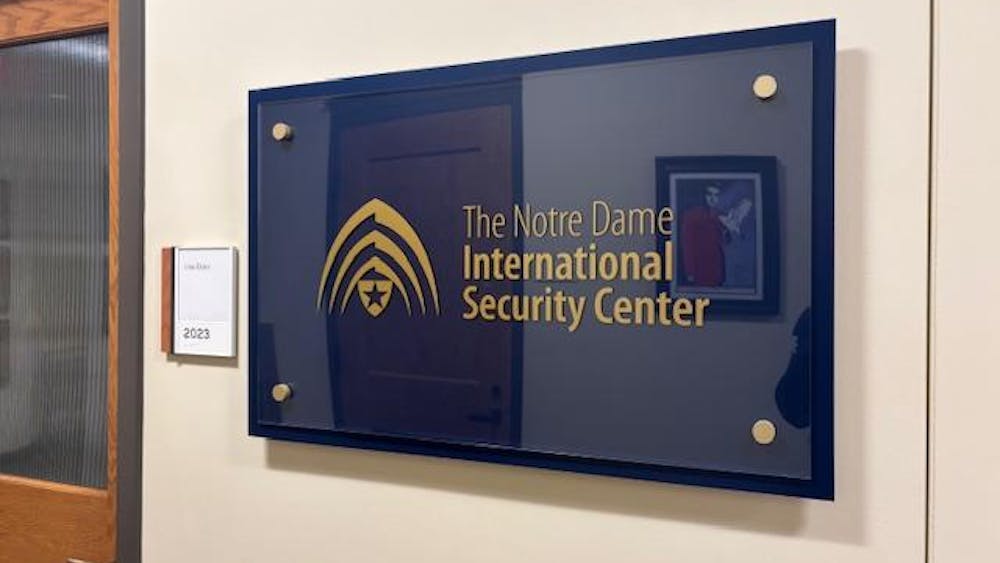On Thursday, Feb. 23, Notre Dame hosted a Colloquy on Black Church Studies, consisting of a roundtable discussion and luncheon, followed by a talk from keynote speaker Tracey Hucks.
Hucks is the Victor S. Thomas professor of Africana religious studies at Harvard Divinity School and the Suzanne Young Murray professor at Harvard Radcliffe Institute for Advanced Study. Her talk was titled “Sacred Bodies, Sacred Bones: Religion, Death and Race in the African Diaspora.”
Mark Sanders, the inaugural director of Notre Dame’s initiative on race and resilience and professor in the Africana studies department, welcomed Hucks to the stage.
Hucks began by quoting Sanders’ philosophy on Africana studies saying “the African American cultural experience is one that can’t be bound by national boundaries, populations and ideas.” She noted those ideas can change in different uses and contexts. Hucks addressed the “diaspora” that the title of her talk references, emphasizing that the understanding of diaspora is not a single, historical moment, but one of continuous diasporas as “movement, migration and travel,” as well as “imagination through thought culture, production and political struggle.”
Hucks was born and raised in Harlem, New York, what she said considers one of the “Black meccas of the diaspora.” In the fall of 2022, Hucks published “Obeah, Orisa, and Religious Identity in Trinidad”—a two-volume book exploring Obeah and Yoruba-Orisa from the colonial era to the present. Obeah is defined as “a form of belief involving sorcery, practiced in parts of the West Indies, South America, the southern U.S. and Africa,” according to the Oxford Dictionary. Hucks’ book focuses on Obeah practices and its reception in Trinidad.
In her talk, Hucks gave a comprehensive history of the formation of Trinidad as a slave colony and how Obeah practices were attacked. In colonial Trinidad, a law stated that “any Negro practicing any form of witchcraft will be put to death.” General Thomas Picton, the first British governor, supported colonial laws that were against African religions, or what the British colonists understood Obeah to be. British colonists and Picton viewed Obeah practices as dangerous and lethal means of witchcraft.
Hucks presented an authentic receipt of the brutal punishments given to people in Trinidad that were caught practicing Obeah. The punishments on the receipt ranged from being led through the town and pilloried to being decapitated.
“I know there’s a lot of death circulating this,” Hucks admitted, after spending a great amount of the presentation discussing the punishments around Obeah. But, she emphasized the importance of knowing what those practicing Obeah experienced.
Hucks said she finished writing this book in the midst of the “racial pandemic” in the summer of 2020, following the George Floyd murder. The final chapters of the book focused on racism today in America, particularly in 2020 and Hucks’ feelings during this time. In the fall of 2022, it was published in the Report of the Steering Committee on Human Remains in Harvard University’s Museums Collection. It was also shown in “The Legacy of Slavery at Harvard” publication in 2022.
Hucks read a few passages from the afterword of the book to close her presentation, including one quote from the last page.
“Perhaps most true is that African religions, in general, represent an infinite resource of spiritual power and weaponry of shielding and sustaining protection,” she said. “And of righteous resistance to the religious violence and enduring beliefs of white racecraft.”
Read More
Trending









